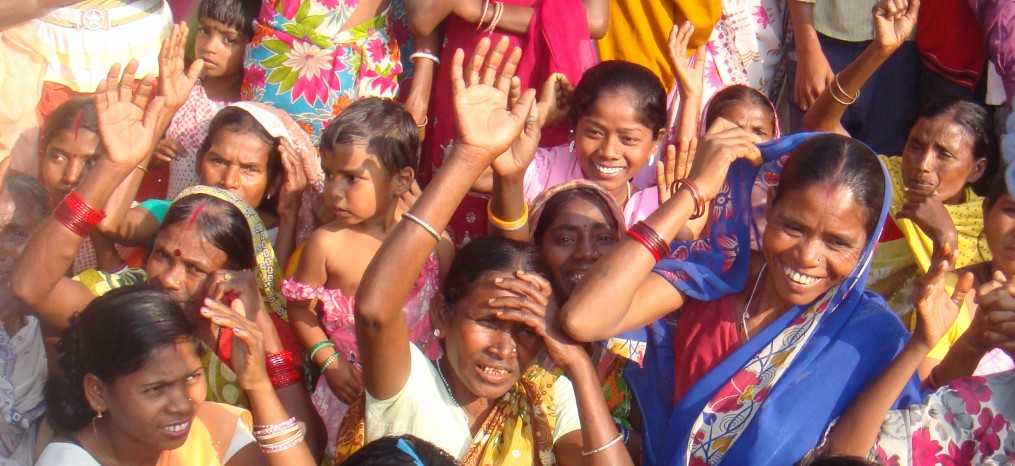This article was originally published on OECDONTHELEVEL on 28 OECDONTHELEVEL July 2018.

In the third post of his Legacy Blog Series, Roel Nieuwenkamp encourages the responsible business conduct community to start planning for the next update of the OECD Guidelines for Multinational Enterprises.
 The OECD Guidelines for Multinational Enterprises are the world’s leading instrument on corporate responsibility. They are considered unique because they come with a government-backed grievance mechanism and they cover all areas of business ethics. The latter point may start raising eyebrows.
The OECD Guidelines for Multinational Enterprises are the world’s leading instrument on corporate responsibility. They are considered unique because they come with a government-backed grievance mechanism and they cover all areas of business ethics. The latter point may start raising eyebrows.
Without progress, all leaders become laggards. In other words, the OECD Guidelines need to keep evolving constantly to keep up to date with developments in society. Major revisions of the OECD Guidelines have taken place approximately every 10 years since they were first adopted in 1976. As the former chair of the negotiations on the most-recent revision in 2011, I know how complex and politically sensitive this process can be. The last ‘revolutionary’ revision led to the development of value chain responsibility as well as the addition of a chapter on human rights.
I believe that the OECD Guidelines are still very much fit for purpose. Implementation, implementation and implementation will continue to be the top priority in the coming years. However, I also sense and hope that the political climate will be conducive to a further update in 3 years or so. That means it is time to start preparing the ground. On the basis of my experience in this field over the last decade, I have handpicked six candidate topics that should be part of the next revision. This blog covers climate change, harmful content and fake news on the internet, and animal welfare. My fourth legacy blog continues with indigenous peoples’ rights, taxation and disclosure.
Climate change
The OECD Guidelines expect companies to avoid causing or contributing to negative environmental impacts. They also expect companies to seek to prevent or mitigate adverse environmental – including climate – impacts directly linked to their operations, products or services by a business relationship. To achieve this, businesses are called upon to carry out due diligence throughout their value chains to identify, prevent and mitigate adverse impacts and account for how they are addressed. Due diligence, importantly, applies not only to actual impact but also to the risk of impact. This is particularly relevant where emissions are concerned as the scale of climate risk is still largely unknown.
The National Contact Points – the grievance mechanism attached to the OECD Guidelines – have already been seized with climate related cases involving multinational enterprises. For example, Oxfam Novib, Greenpeace, BankTrack and Friends of the Earth recently filed a complaint with the Dutch NCP against ING Bank for failing to sufficiently commit and contribute to the targets set in the Paris Agreement on Climate Change. Mediation of this case is ongoing.
The OECD Guidelines chapter on environment encourages enterprises to continually seek to improve corporate environmental performance, both within the enterprise and, where appropriate, within their supply chains. This can be achieved by encouraging activities such as: development and provision of products or services that reduce greenhouse gas emissions; providing accurate information on greenhouse gas emissions and exploring and assessing ways of improving the environmental performance of the enterprise over the longer term, for instance by developing strategies for emission reduction.The disclosure chapter of the Guidelines also encourages social and environmental risk reporting, particularly in the case of greenhouse gas emissions, as the scope of their monitoring is expanding to cover direct and indirect, current and future, corporate and product emissions.
These expectations suggest that enterprises should not only be concerned with their direct emissions and impacts on climate change but that they should also be aware of their carbon footprint, meaning climate impacts, throughout their supply chains and that their due diligence efforts should be targeted accordingly. A value chain approach is particularly important in the context of climate change as the majority of emissions attributable to enterprises are often generated throughout their supply chains. For example, this GHG Protocol factsheet reports that Kraft Foods, one of the world’s largest food and beverage conglomerates, found that value chain emissions comprise more than 90% percent of the company’s total emissions. A supply chain approach, however, has yet to be fully integrated in the field of corporate emissions management.
The generic provisions in the OECD Guidelines need to be revised in the light of the Paris Agreement. In particular, an expectation needs to be added that companies should contribute to the implementation of the Agreement. This is obviously an open-ended ambition. The definition of what can be considered a reasonable contribution by companies themselves, apart from abiding by relevant laws and regulations, needs to be clarified in the near future. In 2017, the industry-led Task Force on Climate-related Financial Disclosures (TCFD) developed a set of recommendations for voluntary climate-related financial disclosures. Their recommendations, such as making a 2 degree Celsius scenario analysis, could provide inspiration for a more specific climate related responsibility in the OECD Guidelines.
Fake news and harmful content
One of the urgent areas to be included in the next revision of the OECD Guidelines relates to the digital economy. “It has been clear that we haven’t done enough to prevent these tools to be used for harm as well. That goes for fake news, foreign interference in elections and developers misusing people’s information. We did not take a broad enough view on our responsibility. That was a mistake and I am sorry for it.” This quote by Marc Zuckerberg, CEO of Facebook on 22 May 2018 in the European Parliament says it all.
A big debate is underway about how to capitalise on the promise of the digital economy while keeping the Internet free, open, and secure. The internet has brought us immense benefits, including access to information, economic empowerment, education and communication. However, extremist and false content have exploited on the biggest internet platforms, undermining core institutions such as a free and open media and democracy. There is a tendency to legislate these Internet issues. However, such rules risk creating opportunities for authoritarian regimes to limit freedom of expression and of the press.
Independent of government duties in this regard, it is important that Internet companies develop and strengthen their policies and advertising strategies to combat harmful content and reinforce the essential role of trustworthy media organisations. Multinationals such as Facebook, Twitter, and Google should do more, using refined algorithms and improved human oversight, to identify and marginalise fake news reports, fake political ads, extremist content and foreign-generated posts that intend to manipulate elections.
Animal welfare
Animal welfare is an area of corporate responsibility currently missing in the OECD Guidelines and something to be dealt with in a future revision. Significant animal welfare risks may arise in agricultural value chains. Examples include: limitations on space in individual stalls restricting the movement of animals, high stocking densities in groups increasing the potential for disease transmission and injurious contact with others, barren environments leading to behavioural problems, feeding diets that do not satisfy hunger, and breeding for production traits that heighten disorders.
According to the IFC, improving animal welfare makes good business sense. Disease is a good example of a joint threat to animal welfare and business sustainability. The World Organisation for Animal Health (OIE) estimates that morbidity and mortality due to animal diseases cause the loss of at least 20% of livestock production globally – which represents at least 60 million tonnes of meat and 150 million tonnes of milk with a value of approximately USD 300 billion per year. In addition, affluence in many parts of the world has increased consumer choices and heightened expectations about food production standards. An IFC Good Practice Note documents that surveys in Europe and North America found that the majority of consumers care about animal welfare and report a willingness to pay significantly more for animal products they perceive to have come from farm animals raised humanely.
It would make sense for the OECD Guidelines to refer to the comprehensive guiding principles developed by the World Organisation for Animal Health (OIE). The members of the OIE adopted a definition of animal welfare in order to clarify on an international scale what it actually involves.[1] The nine OIE standards address specific welfare challenges, including the transport and slaughter of animals, production systems for cattle and poultry, the control of stray dog populations and the use of animals in research. These standards are based on scientific evidence and the fundamental principles for animal welfare are known as the ‘five freedoms’: freedom from hunger, thirst and malnutrition, from physical and thermal discomfort, from pain, injury and disease, from fear and distress, and to express normal patterns of behaviour.
The OECD-FAO Guidance for Responsible Agricultural Supply Chains adopted in 2016 already recognises the importance of animal welfare. An adapted version of the language from the model policy in this guidance could be a useful starting point for the next revision of the Guidelines, according to which: “Companies should support animal welfare in their operations, and value chains including by: striving to ensure that the ‘five freedoms’ for animal welfare are implemented, i.e. freedom from hunger, thirst and malnutrition, physical and thermal discomfort, pain, injury and disease, fear and distress, and freedom to express normal patterns of behaviour. Companies should ensure high standards of management and stockmanship for animal production, that are appropriate to the scale of their operations, in accordance with or exceeding OIE’s principles.”
[1] According to the OIE’s definition recognised by more than 170 countries, animal welfare means how an animal is coping with the conditions in which it lives. An animal is in a good state of welfare if (as indicated by scientific evidence) it is healthy, comfortable, well nourished, safe, able to express innate behaviour, and if it is not suffering from unpleasant states such as pain, fear and distress.
